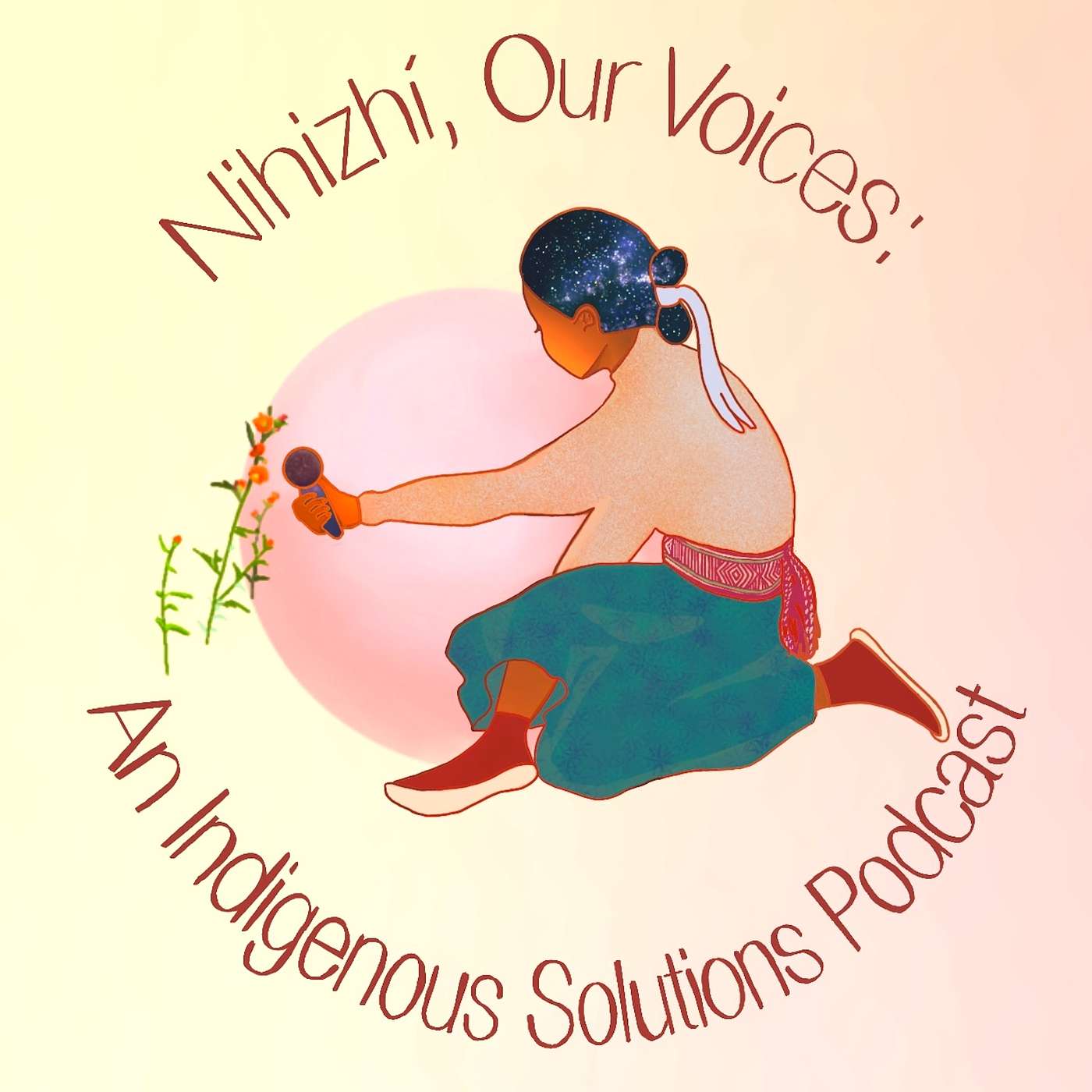.webp) Shinnecock Kelp Forestry on Long Island: Revolutionizing Atlantic Stewardship with Tela Troge
49:09
Shinnecock Kelp Forestry on Long Island: Revolutionizing Atlantic Stewardship with Tela Troge
49:09
 The Tidewater People: Nanticoke Food Sovereignty in Delaware with Karelle Hall and Courtney Streett
1:06:56
The Tidewater People: Nanticoke Food Sovereignty in Delaware with Karelle Hall and Courtney Streett
1:06:56
 Pathways to Right Relations as a White British Man: A Conversation with Justin Adams
1:11:49
Pathways to Right Relations as a White British Man: A Conversation with Justin Adams
1:11:49
 Kanien'kehá:ka (Mohawk Nation) Stories, Songs and Wisdom with Theresa “Bear” Fox
47:13
Kanien'kehá:ka (Mohawk Nation) Stories, Songs and Wisdom with Theresa “Bear” Fox
47:13
 The Muwekma Ohlone’s “Trail of Truth” with Charlene Nijmeh
56:46
The Muwekma Ohlone’s “Trail of Truth” with Charlene Nijmeh
56:46
 Thacker Pass: The Lithium Rush & Its Impact on Indigenous Communities
1:01:21
Thacker Pass: The Lithium Rush & Its Impact on Indigenous Communities
1:01:21
 Protectors of the Snow Leopard: Maria Azhunova of the Buryat-Mongol Indigenous Peoples of the Russian Federation
51:32
Protectors of the Snow Leopard: Maria Azhunova of the Buryat-Mongol Indigenous Peoples of the Russian Federation
51:32
 Nisenan Homelands: CHIRP, #LandBack, and Cultural Phoenixing with Shelly Covert and Ember Amador
1:05:54
Nisenan Homelands: CHIRP, #LandBack, and Cultural Phoenixing with Shelly Covert and Ember Amador
1:05:54
 Akimel O'odham Power: Fighting for the Land, Water and Culture with Marina Thomas
54:19
Akimel O'odham Power: Fighting for the Land, Water and Culture with Marina Thomas
54:19
 Israel, Palestine and Indigeneity: A Jewish Perspective with Jeffrey Haas
1:33:16
Israel, Palestine and Indigeneity: A Jewish Perspective with Jeffrey Haas
1:33:16
 Realities, People, and God: Christian Palestinian Liberation Theology with Omar Halamy and Samuel Munayer
1:29:34
Realities, People, and God: Christian Palestinian Liberation Theology with Omar Halamy and Samuel Munayer
1:29:34
 Good Fire: The Karuk Nation and the Original Prescribed Burns of Turtle Island
53:58
Good Fire: The Karuk Nation and the Original Prescribed Burns of Turtle Island
53:58
 Earth Defenders of the Philippines: Bontok-Kankanaey Life with Beverly Longid
59:16
Earth Defenders of the Philippines: Bontok-Kankanaey Life with Beverly Longid
59:16
 Indigenous Parenting, ICWA, and Epigenetics with Grace Johnson, Misty Flowers, and Elizabeth Lovejoy Brown
48:44
Indigenous Parenting, ICWA, and Epigenetics with Grace Johnson, Misty Flowers, and Elizabeth Lovejoy Brown
48:44
 Lessons from Abya Yala: The Indigenous Peoples of Suriname with Sherlien Sanches
58:47
Lessons from Abya Yala: The Indigenous Peoples of Suriname with Sherlien Sanches
58:47
 Black and Indigenous Solidarity with Katina Stone-Butler
1:31:32
Black and Indigenous Solidarity with Katina Stone-Butler
1:31:32
 áyACon: The Power of Indigenous Comics, Fandom, and Artistry with Kristina Bad Hand
1:08:49
áyACon: The Power of Indigenous Comics, Fandom, and Artistry with Kristina Bad Hand
1:08:49
 Bridging Islam and Turtle Island: Parallel Struggles with Mona Haydar
1:31:05
Bridging Islam and Turtle Island: Parallel Struggles with Mona Haydar
1:31:05
 Sacred Animals: Navajo Churro Sheep and Reweaving Our Ancient Ecologies
47:23
Sacred Animals: Navajo Churro Sheep and Reweaving Our Ancient Ecologies
47:23
 Indigenous Food Warriors: Crystal Wahpepah and the Art of Feeding Community
46:20
Indigenous Food Warriors: Crystal Wahpepah and the Art of Feeding Community
46:20
 Indigenous Masculinity, Jim Thorpe, and Hip-Hop with Anishinaabe/Oneida Artist Tall Paul
57:16
Indigenous Masculinity, Jim Thorpe, and Hip-Hop with Anishinaabe/Oneida Artist Tall Paul
57:16
 Lateral Kindness: Sherri Mitchell, Traditions of Compassion, and the Antidote to Division
54:06
Lateral Kindness: Sherri Mitchell, Traditions of Compassion, and the Antidote to Division
54:06
 The Island of Guåhan (Guam): The Beauty & Struggle of Chamorro Liberation with Monaeka Flores
1:04:27
The Island of Guåhan (Guam): The Beauty & Struggle of Chamorro Liberation with Monaeka Flores
1:04:27
 Opening Space for Creator: Karen Rodriguez's Decolonization Journey Home
47:42
Opening Space for Creator: Karen Rodriguez's Decolonization Journey Home
47:42
 Beata Tsosie-Peña: The Poetry of Land Liberation
49:50
Beata Tsosie-Peña: The Poetry of Land Liberation
49:50
